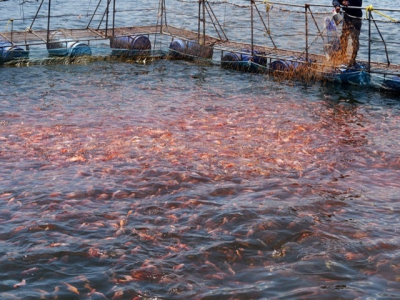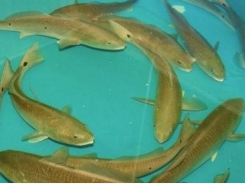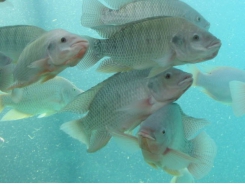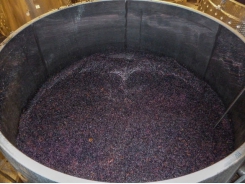Butyrate shown to boost performance, immunity and resistance against possible infection

Dietary sodium butyrate (SB) significantly boosted the growth, feed utilization, and immune response in Nile tilapia challenged against Aeromonas hydrophila infection compared to fish getting the control diet, according to a study by an Egyptian research team.
The bactericidal activity and agglutination activity increased due to the addition of SB in a dose-dependent manner, reported the scientists in a paper published in Animal Feed Science and Technology.
The team, based at the Central Laboratory for Aquaculture Research in Sharqia, also saw that fish fed SB-enriched diets were more resistant to bacterial infection in a dose dependent way, while fish fed the control diet showed highest mortality.
Leading fish feed manufacturer, Skretting, says it is focused on enhancing the tilapia sectors in Egypt, Ecuador and Vietnam.
The company recently launched Protec for tilapia, which it describes as a new functional diet designed to help support that fish species and enhance its ability to cope during challenging situations, including the hot summer seasons.
Protec is currently available in Egypt, it said, while preparations are ongoing at Skretting Vietnam and Skretting Ecuador for its arrival in those regions.
“Tilapia is a truly global species, produced in more countries than any other farmed finfish, with a growing harvest already in excess of 5m tons. Most tilapia farms are open to the natural environment and therefore exposed to many health challenges,” said Dr Christian Delannoy, global health manager, Skretting.
The fish feed group said a new three-year partnership agreement between Skretting Africa and animal health company, IctyoGroup, will provide extensive health and nutritional support to tilapia farmers across Africa, particularly through the pairing of Protec and vaccination to ensure heightened fish survival and wellbeing during the grow-out stages of production.
The alliance is first focusing on tilapia production in Zambia and in East Africa and then it will look to address challenges linked to tilapia production in other markets globally, said Skretting.
Evaluating acidifiers in plant-based fish feed
The Egyptian aquaculture specialists noted a growing interest in the use of acidifiers as feed additives to stimulant performance, health, and immunity of fish fed plant-based diets as the farmed fish sector increasingly migrates away from a dependency on antibiotics.
Fish feed formulations today are typically low in fishmeal and high in plant-based proteins, due to restrictions in supply of marine derived proteins and the increasingly availability and cost effectiveness of plant alternatives. However, the researchers said diets high in plant proteins can result in poorer growth and survival in some fish species. The use of higher levels of plant-derived proteins such as soybean meal (SBM) in diets sometimes leads to histological changes in the intestinal tract; such transformation can be linked to functional disturbances such as enteritis, absorptive cell changes and higher presence of inflammatory cells, resulting in adverse effects on growth performance and feed efficiency, they added.
“There is an increasing interest [in] fish feed additives including acidifiers to prevent and/or repair adverse effects of high content of plants ingredients in fish diets, which might result in impaired fish growth, enteritis, and/or immunity (Krogdahl et al., 2003; Gatlin et al., 2007; Knudsen et al., 2007).”
One promising feed acidifier is sodium butyrate (SB), they said, with it gaining traction due to its positive effect on gut health in humans and livestock animals (Guilloteau et al., 2010).
However, there have been conflicting findings about the use of SB in fish diets, with its underlying action remaining unclear and poorly studied in Nile tilapia, they added.
So the current study was carried out to evaluate the effects of dietary sodium butyrate (SB) on the performance, immunity, and challenge of Nile tilapia against A. hydrophila infection.
Method
In their trial, the authors reported the sodium butyrate source was Gustor BP70 (Norel Misr Co., Giza, Egypt), a protected SB (70%) coated with 30% of vegetable fat. The fat enables SB to be active along the entire digestive tract, they added.
Five diets were formulated with graded SB levels of 0.0 (control), 2.5, 5.0, 7.5 and 10.0 g/kg per diet. The fish were fed the experimental diets manually up to apparent satiation twice a day for 90 days in quadruplicates, they explained.
At the end of the feeding trial, the researchers said the fish were injected with pathogenic bacteria, A. hydrophila, and kept under observation for 10 days to record any irregular clinical signs and daily fish mortality.
Results
Dietary SB showed stimulating-effects on fish growth, feed utilization, and innate immunity of Nile tilapia, in a dose-dependent manner, said the scientists. Fish growth expressed by final weight, weight gain, weight gain %, and specific growth rate (SGR) were significantly higher with fish fed 5.0–7.5g SB/kg diet than the fish fed the control diet, found the team.
Likewise, serum lysozyme activity and respiratory burst as well as bactericidal and agglutination activities were significantly improved due to dietary SB supplementation in a dose-dependent trend, said the researchers.
Following A. hydrophila infection, no fish mortality was detected in fish fed the 7.5–10.0 g SB/kg diets, whereas fish fed the control diet showed highest mortality (85.0%), they saw.
The ability of dietary SB to inhibit bacterial infection had already been confirmed in earlier studies, with da Silva et al. (2013) observing the antimicrobial activity of sodium butyrate against Vibrio anguillarum, V. alginolyticus, and V. harveyi at pH of 6.2 and 7.1, said the authors.
In terms of mode of action, they said the positive impact of the addition of SB into the Nile tilapia diet may be due to the additive enlarging the gut surface area through increasing the height and width of intestinal villi leading to subsequent improved nutrient absorption in the fish intestine (Abdel-Mohsen et al., 2018; Zhou et al., 2019).
Moreover, acidifier incorporation in fish diets could stimulate the growth of beneficial flora (Abu Elala and Ragaa, 2015), they observed. It could also reduce the quantity of pathogenic bacteria in the fish intestine (Abdel-Mohsen et al., 2018). Such developments may be linked to higher secretion of digestive enzymes inside the fish gut, resulting in increasing nutrient digestibility, absorption, and utilization (Khajepour and Hosseini, 2012; Hoseinifar et al., 2017), said the researchers.
Source: Animal Feed Science and Technology
Authors: F Samir, A El-Rahman A Khattaby, AS Abd El-Naby, S MM Awad, M Abdel-Tawwab,
Related news
Tools

Phối trộn thức ăn chăn nuôi

Pha dung dịch thủy canh

Định mức cho tôm ăn

Phối trộn phân bón NPK

Xác định tỷ lệ tôm sống

Chuyển đổi đơn vị phân bón

Xác định công suất sục khí

Chuyển đổi đơn vị tôm

Tính diện tích nhà kính

Tính thể tích ao




 The bacterium that's battling Streptococcus in tilapia
The bacterium that's battling Streptococcus in tilapia  Grape pomace may support farmed fish facing disease…
Grape pomace may support farmed fish facing disease…